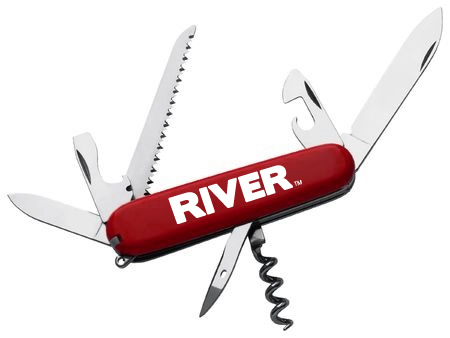Mentoring Program Ideas
We all know that mentoring can play a critical role in our careers and development, but sometimes it’s hard to get started or difficult to find the right fit. Mentoring is special because it focuses on each person’s needs or talents. It’s about the personalized connections we make with coworkers and colleagues. We can leverage it to tackle our own development needs or to take advantage of our expertise in order to help others. Or perhaps more simply put: mentoring is a process that allows us to learn from those around us while making ourselves better both personally and professionally.

Organizations have embraced mentoring because they know that employees will benefit from active participation in mentoring relationships. Through our nearly two decades as a leading mentoring software provider, we know this is true, too. It’s why we’re passionate about what we do and believe in the idea that we are making a difference in people’s lives.
In honor of National Mentoring Month, we are excited to help organizations make mentoring even easier to launch and support through our newly introduced program-specific pricing. We know many mentoring programs get off the ground by first finding a foothold in a specific area of the company or within a targeted program. We know it’s not always easy to get a program up and running, and that too often it comes down to people volunteering their time to make it happen because it’s a practice that they believe in. But we know it can happen because of these advocates and dreamers, and we say thank you for your dedication to mentoring and for making the process come to life at your organization.
Programmatic pricing from River can help kick off mentoring with a receptive audience who wants to take advantage of a career-changing practice. Consider leveraging mentoring in these areas as a starting point:
1. Diversity & Inclusion
 Research has shown that a diverse network can help support deeper learning, spark more innovation, and generate better collaboration. In fact, the richness of diverse views and understandings often grows more abundant when people reach outside of their typical like-minded networks. Use mentoring as a way to help people find, connect and learn from others who are outside their typical network. These diverse relationships can mean connections are made along typical difference points such as age, race and gender, but we also suggest that diversity means connecting with people in other job roles, functions, locations and disciplines to create a broad and eclectic network.
Research has shown that a diverse network can help support deeper learning, spark more innovation, and generate better collaboration. In fact, the richness of diverse views and understandings often grows more abundant when people reach outside of their typical like-minded networks. Use mentoring as a way to help people find, connect and learn from others who are outside their typical network. These diverse relationships can mean connections are made along typical difference points such as age, race and gender, but we also suggest that diversity means connecting with people in other job roles, functions, locations and disciplines to create a broad and eclectic network.
2. High Potentials
Formal mentoring typically exists in high potential programs because it is a natural fit for these career-driven programs. Organizations want their up-and-comers to learn from their best and brightest, making mentoring an ideal way to support learners and spread best practices from organizational experts. The downside is that most high potential programs only look to people in leadership roles to be the mentors for the high potential employees. Instead of using a prescriptive method that connects a high-potential employee to one mentor, let your brightest talent pull from an array of mentors, advisors, and knowledge resources. This doesn’t mean that you have to give up your formal mentoring program if it is working for you, but you should provide these future leaders with a more expansive way to connect with diverse colleagues throughout your organization so that they can build a well-rounded and deep understanding of the business overall.
3. Onboarding
 Sixty-five percent of companies in a 2011 Society for Human Resource Management (SHRM) survey said it is difficult for new hires to learn on their own the necessary information about other people to establish effective working relationships. So don’t make them learn this by themselves! Help new hires by having them join mentoring relationships and groups as soon as they begin their jobs so that they always have a network to tap into and have the tools and support they need to establish working relationships. These new hires also have a lot to give to your company—you wouldn’t have hired them otherwise. Having mentoring as part of the onboarding process allows your new hires to give back to your organization immediately by sharing what they know and providing a new voice that may just supply the innovative idea you were searching for.
Sixty-five percent of companies in a 2011 Society for Human Resource Management (SHRM) survey said it is difficult for new hires to learn on their own the necessary information about other people to establish effective working relationships. So don’t make them learn this by themselves! Help new hires by having them join mentoring relationships and groups as soon as they begin their jobs so that they always have a network to tap into and have the tools and support they need to establish working relationships. These new hires also have a lot to give to your company—you wouldn’t have hired them otherwise. Having mentoring as part of the onboarding process allows your new hires to give back to your organization immediately by sharing what they know and providing a new voice that may just supply the innovative idea you were searching for.
Some additional areas where mentoring fits in seamlessly include:
- Leadership development programs
- Succession planning programs
- Performance development conversations
- Training activities
- And many more!
Where else could you use mentoring? What programs could you support with the process? Tweet at us using our Twitter handle, @RiverLearning, to share your ideas!








